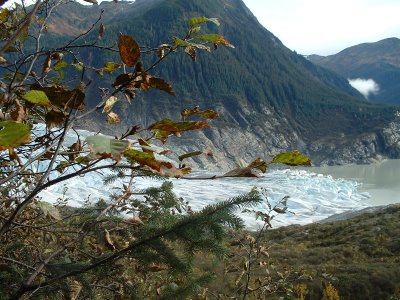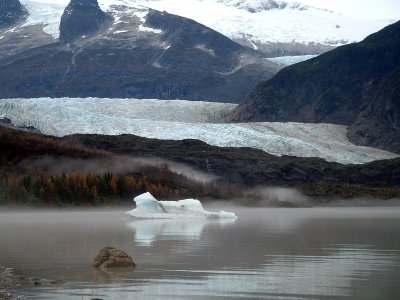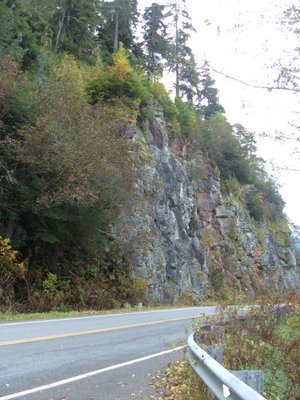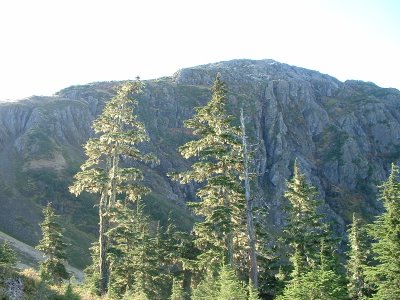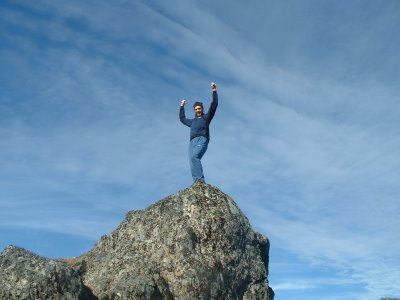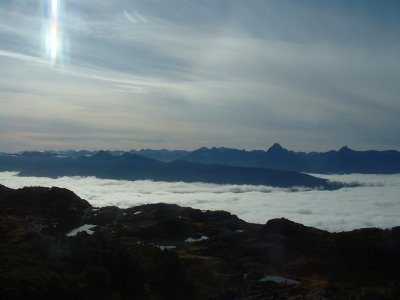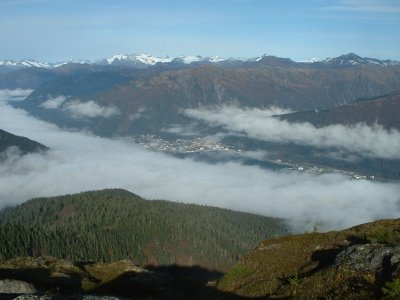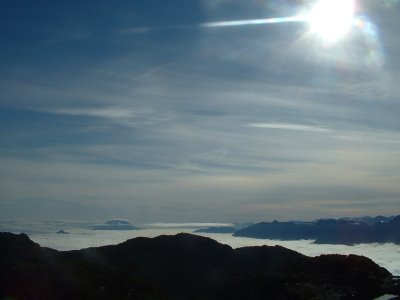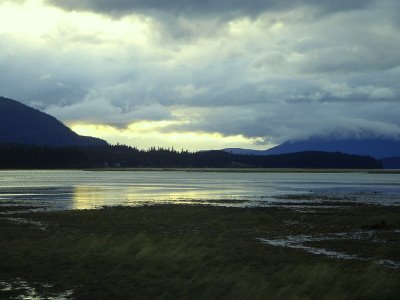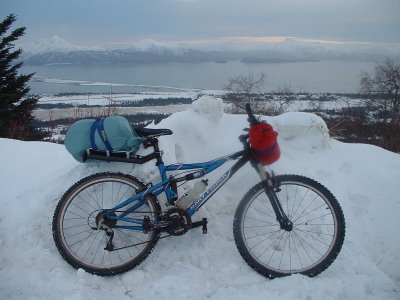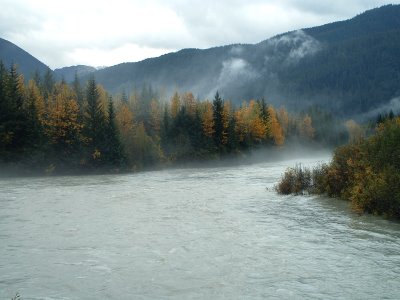 Date: Oct. 17
Date: Oct. 17Total mileage: 25.2
October mileage: 233.7
Temperature upon departure: 42
Many cyclists I know, especially those who race their bicycles on a regular basis, have begun to talk about the "off season." As in most sports, cycling has found its drastic ebb and flow, which means from March to September all I hear about is trainingracingridingracingtraining. Then, October hits ... a couple of leaves drop ... and suddenly ... nothing.
Up in Alaska, far away from the velodromes and crits and Cat-4's and what have you, this "off season" is still very much a mystery to me. For what little racing I do - and for how liberally I'd have to use the term "athlete" to call myself one - I tend to have events spread fairly evenly throughout the year. I've been in a bit of a slump - I'll call it an "off-season" - since July. But pretty soon, at about the beginning of November, I'll have to think about upping the training and scheduling focused workouts if I want to be in shape come February. It's the depths of cold, dark winter. It's when I like to be "on."
So now that I have to gear up, and watch my fellow cyclists wind down, I can't help but speculate on the mystery of it all. Where do cyclists go during the "off season" to give it such a defeated, fatalistic name? I have some theories:
"Beer and television:" I think the smart athletes would give themselves some real time off, and do as Lance Armstrong does. You know: go for easy spins with President Bush and party all night with celebrities. And if, unlike Lance, they were willing to give all that up to go back to the lonely, relentless life of a racing cyclist, I would think that beer gut would give them all that much more motivation in the spring.
"Trainer hell:" These cyclists I know, they're so preoccupied with going fast that they forget they can just put on a big poofy snow suit and mount some flood lights to their Bianchis so they can keep riding outside during cold, dark winter days. Instead, they put their poor bicycles on rollers and spend two to three hours a day dripping sweat all over the carpet of their cold, dark basements. As a former gym rat, I actually have no problem with the concept, especially if you have access to a good iPod lineup and all three seasons of Arrested Development on DVD. But every day? All winter long? Eee.
"Cross-training:" I don't how many cyclists also Nordic ski. But I definitely think more should. Not only do you work all the important leg muscles, you also have an excuse to continue wearing spandex all winter long. Mountain bike racers should snowboard ... good practice for dodging trees and grabbing that sweet, sweet air. I'd also suggest snowshoes, but I don't know many cyclists who also run (except for those crazy triathletes). The rest of us, I believe, are opposed to unaided human power on principle.
"Real jobs:" Some people who race all summer long take so much time off that they have to buckle down and work day and night throughout the winter just to support the habit. I admire that, but I don't really have any good advice for such a person.
"Hibernation:" This is different from beer and television, because to actually be in hibernation, I don't think you can be doing what 95 percent of everyone else is doing. No, you actually have to be fast asleep. Dreaming of green trails and dry roads. I also don't have any good advice for you.
"IceBike:" It's everyone's favorite novelty Web site, but so few seem to actually do it. Trust me, once you experiment with the wonders of snowbiking, you'll understand why I consider late summer the "off season."
But seriously, "real cyclists," where do you go during the winter? I used to pass you on the road all the time. Now your numbers are diminishing. Soon you'll all be gone, and I feel lonely just thinking about it.






